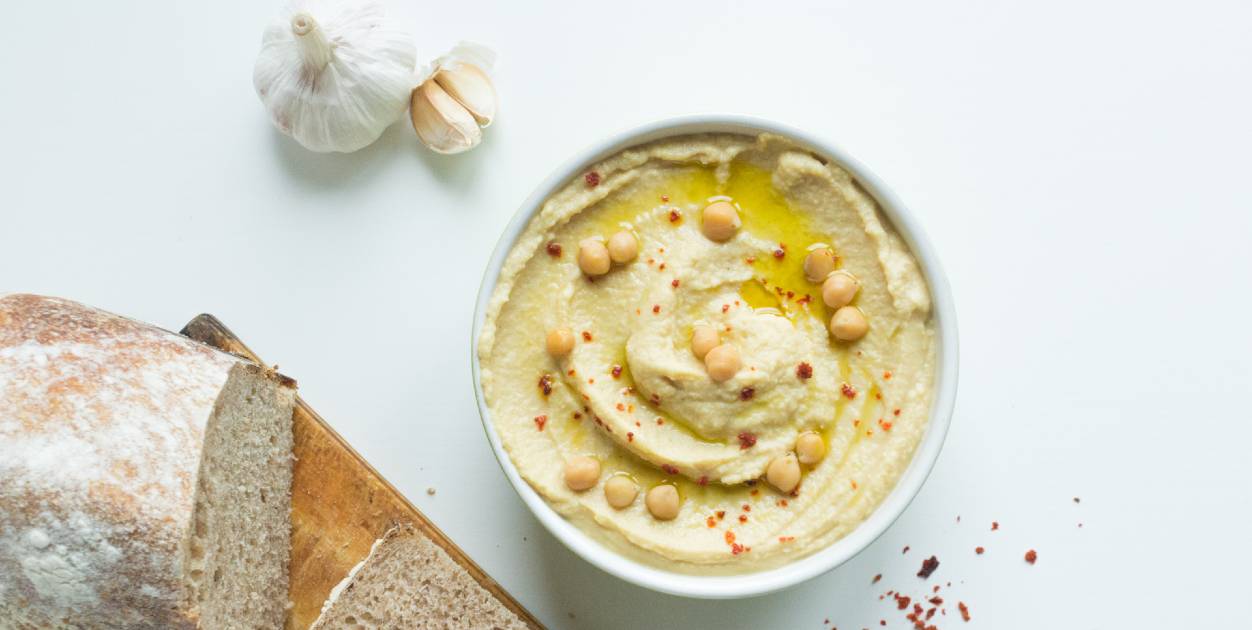Hummus

In my mind, hummus is the perfect snack — it’s filling, can be spread or dipped onto any number of foods and it’s a great source of protein. So when I saw a study released by the Environmental Working Group about glyphosate levels in hummus and chickpeas, my throat dropped into my stomach.
Product List
Cedar’s Original Organic Hommus
Whole Foods Market Original Organic Hummus
O Organics Traditional Organic Hummus
The Perfect Pita Traditional Hummus
Episodes Mentioned
Listen to the GRASS episode here.
Sources
SUBSCRIBE
Subscribe on iTunes here.
Subscribe on Spotify here.
Subscribe on Google Podcasts here.
Transcript
I don’t know about your family, but mine eats a lot of hummus. Between the three of us, we’ll go through a large container of hummus in the week. In my mind, it’s the perfect snack — it’s filling, can be spread or dipped onto any number of foods and it’s a great source of protein. So when I saw a study released by the Environmental Working Group about glyphosate levels in hummus and chickpeas, my throat dropped into my stomach. And it’s these findings and alternative hummus recommendations that I’m going to share in today’s episode.
So, first, let’s do a quick refresher on glyphosate. I talked about glyphosate as it relates to lawns, gardening and farming back in the episode titled GRASS. I’ll link to it in the show notes for this episode.
Glyphosate is a herbicide that is found in the most widely-used weed killer, Roundup. It’s sprayed on conventional, non-organic foods across the world, but most notably in the U.S. Studies have shown glyphosate causes cancer and both Monsanto and Bayer have paid out millions and millions of dollars in court settlements to victims of this chemical.
Until I started doing deeper research for this podcast, I naively assumed that if I was buying everything organic then there wouldn’t be any glyphosate in our food. But studies updated in July 2020 from the EWG have found levels of glyphosate in both conventional and organic hummus, canned chickpeas, dried chickpeas, dried lentils and garbanzo flour.
So, does that mean I’ve stopped eating hummus and you should too?
No. Hummus is still a nutritious food to include in your diet. Chickpeas are an excellent source of dietary fiber, high levels of vitamins A, E, and C, folate, magnesium, iron and potassium, as well as aids to weight control and reduced cholesterol. What it does mean is that you have to be more careful about the type of hummus you buy.
So, first let’s look at the results of the study: the EWG found glyphosate in 90 percent of all chickpea and hummus samples.
The brands that were tested include Sabra, Whole Foods Market, Harris Teeter, Simple Truth, Trader Joe’s, Boar’s Head, Tribe, Nature’s Promise and more. I’ve linked to the article with the full list at cleanlivingpodcast.com/hummus
The hummus with the highest levels of glyphosate is Whole Foods Market Original Hummus (the conventional kind not the organic version) and is over 15 times the EWG benchmark of acceptable levels of glyphosate. Harris Teeter store-brand hummus had the second highest glyphosate concentration.
Among different hummus brands, six of nine conventional Sabra samples THAT WERE tested exceeded EWG’s benchmark. Sabra is the leading U.S. hummus brand, with more than half of the hummus market.
It’s important to note here that this version of hummus has a Non-GMO symbol and label on the packaging — so that’s a reminder that just because something is non-GMO doesn’t mean it’s organic.
I also want to point out that the price difference between conventional hummus and organic hummus is between 45 cents to one dollar.
By law, organic farmers are not allowed to apply glyphosate or other pesticides to grow and harvest crops. So it’s suspected that levels of glyphosate can be found in some organic foods depending on if the farming site is located close to conventional farming where pesticides are being sprayed and then running downstream through the water runoff.
When it comes to testing food for glyphosate, the most commonly used pesticide in the U.S., the EWG says the federal government makes it a point to look the other way.
In 2018, the USDA collected more than 500 chickpea samples for pesticide tests as part of its Pesticide Data Program. However, the program did not include glyphosate testing. Although the FDA has tested some foods for glyphosate, the tests did not include foods known to be sprayed with the chemical.
So, that begs the question — which brands of hummus are safe to buy? According to the EWG’s study, the following hummus products were below the limit of quantification or non-detectable: Cedar’s Original Organic Hommus, Whole Foods Market Original Organic Hummus, O Organics Traditional Organic Hummus, The Perfect Pita Traditional Hummus (which is notably conventional and not organic). As always, I’ll link these product recommendations in the show notes at cleanlivingpodcast.com/hummus
I know that was a downer of an episode, but this is a perfect example of how knowledge is power. If you love hummus, you don’t have to give it up — you just need to know which brands to buy to keep you and your family safe. And now you know.
Thanks so much for listening to this episode of The Clean Living Podcast — I’m your host Shannon Lohr. If you learned something today please leave a positive review as it helps more people find out about this podcast. Here’s to creating a cleaner, more sustainable world for all of us.

